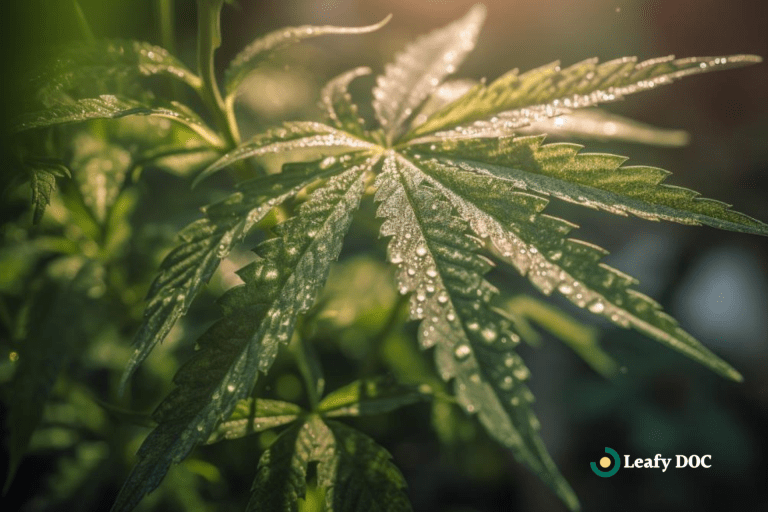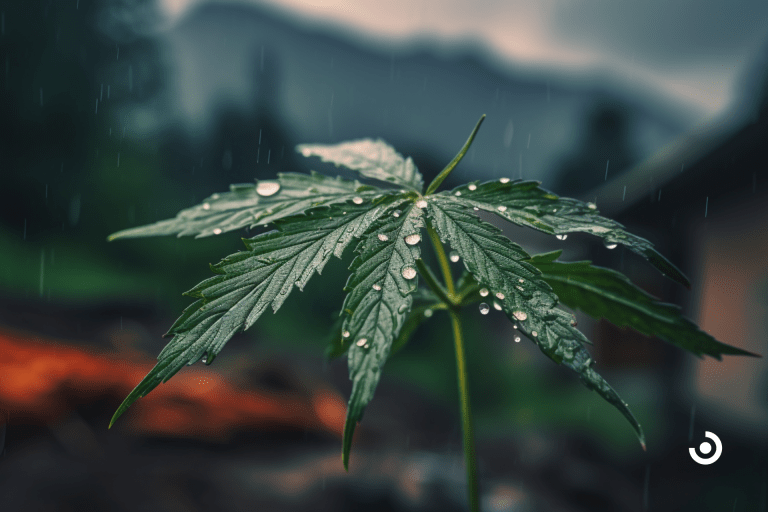Medical Marijuana for PTSD in Veterans and First Responders
by Haley Mills · April 17, 2023
Learn about the use of medical marijuana in treating PTSD in veterans and first responders. Discover how cannabis can be used to manage symptoms and improve quality of life.

The use of medical marijuana as a treatment option for various medical conditions has gained significant traction in recent years. Among the myriad of potential applications, one of the most promising areas is the treatment of Post-Traumatic Stress Disorder (PTSD) in veterans and first responders. Here, we’ll aim to explore the benefits, drawbacks, and overall potential of cannabis-based therapy in managing the debilitating symptoms of PTSD among these brave individuals.
Throughout the article, we will examine the clinical evidence supporting the use of medical marijuana for PTSD, explore the various strains and delivery methods available, and discuss the legal and societal implications of its adoption in the medical field. Our goal is to provide readers with a comprehensive understanding of the potential of medical marijuana as an alternative or adjunct treatment for PTSD in veterans and first responders and the impact it could have on their lives.
What is Post-traumatic Stress Disorder?
Post-Traumatic Stress Disorder (PTSD) is a mental health condition that can develop following exposure to a traumatic event or series of events. These events may involve actual or threatened death, serious injury, or sexual violence, either through direct experience, witnessing it happen to others, learning about it happening to a close family member or friend, or repeated exposure to traumatic details as part of one’s job (such as first responders or military personnel).
What are the symptoms of PTSD?
PTSD is characterized by a range of symptoms that can be grouped into four main categories:
- Intrusive memories: These include recurrent, unwanted, and distressing memories of the traumatic event, flashbacks, nightmares, and severe emotional or physical reactions to reminders of the trauma.
- Avoidance: Individuals with PTSD may avoid thoughts, feelings, conversations, people, places, or activities that remind them of the traumatic event. This can lead to social isolation and difficulty maintaining relationships.
- Adverse changes in thinking and mood: PTSD can result in persistent negative emotions, detachment from others, hopelessness, diminished interest in activities once enjoyed, difficulty experiencing positive emotions, and negative beliefs about oneself or the world.
- Changes in arousal and reactivity: PTSD can cause increased irritability, anger, reckless or self-destructive behavior, difficulty concentrating, hypervigilance (constantly being on guard for danger), and trouble sleeping.
The severity and duration of PTSD symptoms can vary among individuals, and not everyone who experiences trauma will develop PTSD. Treatment for PTSD typically involves a combination of psychotherapy (such as cognitive-behavioral therapy or exposure therapy), medication, and support from friends, family, and support groups. Early intervention and treatment are crucial in improving the prognosis and overall quality of life for individuals with PTSD.
How does PTSD affect Veterans & First Responders?
PTSD can profoundly impact the lives of veterans and first responders, who often experience repeated exposure to traumatic events as part of their job duties. While the symptoms of PTSD are similar across affected populations, the unique nature of their work can exacerbate the challenges they face. Some of the ways PTSD affects veterans and first responders include:
- Higher prevalence: Veterans and first responders, such as police officers, firefighters, and emergency medical personnel, are at a higher risk of developing PTSD due to the nature of their work. They may encounter life-threatening situations, witness severe injuries or death, or be involved in high-stress operations, increasing their chances of experiencing traumatic events.
- Occupational impact: PTSD can affect job performance, leading to reduced productivity, increased absenteeism, and difficulty in decision-making. The symptoms of PTSD can make it challenging to continue working in high-stress environments, potentially resulting in early retirement or a need to change careers.
- Family and social life: The avoidance, emotional numbness, and irritability associated with PTSD can strain relationships with family members, friends, and colleagues. Veterans and first responders may struggle to connect with others, withdraw from social situations, or experience increased conflict in their personal lives.
- Mental health comorbidities: PTSD is often associated with other mental health conditions, such as depression, anxiety, and substance abuse. Veterans and first responders with PTSD may turn to alcohol or drugs to cope with their symptoms, potentially leading to addiction and exacerbating existing mental health issues.
- Increased suicide risk: The combined effects of PTSD, comorbid mental health conditions, and the challenges faced by veterans and first responders can contribute to an increased risk of suicidal thoughts and behaviors.
To address the unique needs of veterans and first responders, specialized treatment programs and resources have been developed, including peer support groups, targeted therapy approaches, and dedicated mental health services. It is crucial for society to recognize and address the specific challenges faced by these individuals to provide them with the support they need to cope with and recover from PTSD.
Are there studies to show MMJ may benefit PTSD sufferers?
There have been several studies and reviews that suggest medical marijuana (MMJ) may provide benefits to individuals suffering from PTSD. While more research is needed to establish definitive conclusions, some studies have demonstrated promising results in reducing PTSD symptoms such as anxiety, depression, and sleep disturbances. Here are a few examples of studies that have explored the potential benefits of MMJ for PTSD sufferers:
- A study published in the Journal of Psychoactive Drugs in 2019 examined the relationship between cannabis use and PTSD symptom severity in a sample of 404 Canadian medical cannabis patients. The study found that patients with PTSD who used cannabis reported a more significant reduction in symptom severity than those who did not use cannabis, suggesting a potential therapeutic benefit for PTSD sufferers.
Reference: Bonn-Miller, M. O., Babson, K. A., & Vandrey, R. (2014). Using cannabis to help you sleep: heightened frequency of medical cannabis use among those with PTSD. Drug and alcohol dependence, 136, 162-165.
- A 2020 systematic review published in the Journal of Dual Diagnosis analyzed the available evidence on the effectiveness of cannabinoids in treating PTSD. The review concluded that cannabinoids, including MMJ, may have potential therapeutic effects on PTSD-related sleep disturbances, anxiety, and intrusive memories. However, more high-quality research is needed to confirm these findings.
Reference: Betthauser, K., Pilz, J., & Vollmer, L. E. (2015). Use and effects of cannabinoids in military veterans with posttraumatic stress disorder. American Journal of Health-System Pharmacy, 72(15), 1279-1284.
- A 2014 study published in Drug and Alcohol Dependence explored the relationship between cannabis use and sleep quality in a sample of 170 medical cannabis users with and without PTSD. The study found that cannabis use was associated with a higher likelihood of using it to improve sleep, especially among those with PTSD. This suggests that MMJ may relieve sleep disturbances, a common symptom of PTSD.
Reference: Lake, S., Kerr, T., & Montaner, J. (2015). Prescribing medical cannabis in Canada: Are we being too cautious? Canadian Journal of Public Health, 106(5), e328-e330.
Are there risks associated with medical cannabis use for PTSD?
While medical cannabis has shown potential benefits in managing PTSD symptoms, it is essential to consider the potential risks and side effects associated with its use. Some risks and side effects include:
- Dependence and addiction: Prolonged use of medical marijuana, especially strains with high THC content, can lead to cannabis dependence and, in some cases, addiction. This risk may be higher for individuals with a history of substance abuse.
- Cognitive impairment: Cannabis use can cause short-term cognitive impairment, such as difficulties with attention, memory, and decision-making. This may impact daily functioning, job performance, or the ability to safely operate a vehicle or heavy machinery.
- Increased anxiety and paranoia: While some strains of cannabis are reported to reduce anxiety, others, particularly those high in THC, can exacerbate anxiety disorders or trigger paranoia in some PTSD patients. This can potentially worsen PTSD symptoms in some instances.
- Worsening of psychiatric symptoms: Cannabis use has been linked to an increased risk of developing or exacerbating psychiatric symptoms, such as mood disorders, psychosis, or suicidal ideation, especially in individuals predisposed to these conditions.
- Drug interactions: Medical marijuana prescriptions can interact with other medications, reducing their effectiveness or causing potentially dangerous side effects. It is crucial to consult with a healthcare professional to ensure safe and appropriate use.
- Adverse physical effects: Long-term cannabis use, mainly through smoking, can lead to respiratory issues, cardiovascular risks, and other adverse physical health effects.
- Variability in strains and dosages: The effectiveness and side effects of the medical cannabis plant can vary depending on the strain, method of consumption, and dosage. This variability can make finding the proper treatment regimen challenging for individuals with posttraumatic stress disorder.
Given these potential risks and side effects, it is essential for individuals considering medical cannabis for PTSD to consult with a healthcare professional. A medical expert can help determine whether medical cannabis is an appropriate treatment option, recommend specific strains and dosages, and monitor the patient’s progress and response to treatment.
Medical Marijuana Vs. Opioid Use for PTSD
Medical marijuana and opioids have potential applications in managing PTSD symptoms; however, they differ significantly in terms of their mechanisms of action, side effects, and risks. Medical marijuana, derived from the cannabis plant, is known for its potential therapeutic benefits in reducing anxiety, depression, and insomnia and alleviating chronic pain.
It contains various cannabinoids, such as THC and CBD, which interact with the endocannabinoid system in the body to produce a range of effects. In some cases, medical marijuana can serve as an alternative or adjunct treatment for PTSD, particularly for those who have not responded well to traditional medications or therapies.
On the other hand, opioids are a class of powerful pain-relieving medications derived from the opium poppy plant or synthesized in the laboratory. They bind to opioid receptors in the brain and central nervous system, which can effectively alleviate acute and chronic pain.
However, the use of opioids for PTSD can be more complex, as they are primarily intended for pain management and may not address the full range of PTSD symptoms. Additionally, opioids carry a significant risk of dependence, addiction, and overdose, particularly with long-term use. As a result, they are typically prescribed cautiously and under close medical supervision.
5 Best Cannabis Strains for PTSD
The effectiveness of a cannabis strain for PTSD can vary depending on an individual’s unique needs and preferences. It is crucial to consult a medical professional before using cannabis for PTSD, as they can help guide you in selecting the best strain and dosage. That said, here are five cannabis strains that have gained popularity among PTSD patients for their potential therapeutic benefits:
Blue Dream
Blue Dream is a hybrid strain combining the Sativa-dominant Haze’s uplifting effects with the Indica-dominant Blueberry’s calming properties. It is known for providing gentle, full-body relaxation while maintaining mental clarity. With a high THC and moderate CBD content, Blue Dream is reported to help manage symptoms like anxiety, depression, and chronic pain, making it a popular choice among PTSD patients.
Cannatonic
Cannatonic is a hybrid strain with a balanced ratio of THC to CBD. It suits those who want the therapeutic benefits without experiencing the intense psychoactive effects of high-THC strains. Known for its mellow, relaxing effects, Cannatonic is believed to help with anxiety, stress, and muscle tension. Its relatively high CBD content also contributes to its potential anti-inflammatory and neuroprotective properties.
granddaddy purple
As an Indica-dominant strain, Granddaddy Purple is known for its deeply relaxing and calming effects. Its high THC content is coupled with a moderate CBD content, which may help manage chronic pain, insomnia, and anxiety. The soothing properties of Granddaddy Purple make it an ideal choice for PTSD patients who struggle with sleep issues or need help winding down after a stressful day.
Pineapple Express
Pineapple Express is a Sativa-dominant hybrid strain with a reputation for delivering an uplifting and energetic experience. It is believed to help improve mood, increase creativity, and relieve mild pain. The moderate THC and low CBD content make it suitable for combatting PTSD-related depression and fatigue without feeling overly sedated.
Harlequin
Harlequin is a Sativa-dominant strain known for its high CBD and low THC content. This unique cannabinoid profile produces a clear-headed, functional experience without intense psychoactive effects. Harlequin is famous among PTSD patients for its potential to alleviate anxiety, stress, and inflammation while providing a sense of relaxation and focus.
Final Thoughts
In conclusion, the growing body of research and clinical evidence suggests that medical marijuana holds significant potential for treating PTSD patients, specifically in veterans and first responders. As we have seen, various cannabis strains and delivery methods can be tailored to individual needs, and the benefits of its use may extend beyond the reduction of PTSD symptoms to include improvements in sleep, mood, and overall quality of life. However, it is essential to emphasize that medical marijuana is not a one-size-fits-all solution and that its efficacy and safety must be continually assessed individually.
While the legal and societal implications of using medical marijuana for PTSD treatment continue to evolve, it is vital for healthcare providers, policymakers, and the public to remain informed and open to its potential. Only through continued research, conversation, and advocacy can we ensure that veterans and first responders suffering from PTSD can access the most effective treatments available, including the potential benefits of medical marijuana.
Last Updated: August 8, 2024
Get Approved for Your Medical Marijuana Card in Minutes!

Get Your Medical Card
Connect with a licensed physician online in minutes

Like This Article?
Share with your friends
Table of Contents
Keep Reading
-
Understanding The Use Of Cannabis Plants For Medical Purposes
Unlock the Power of Cannabis Plants for Medical Use – Explore the Revolutionary Healing Potential Today! Click to Discover More.
-
Finding The Right Doctors For Your Medical Marijuana Card
Unlock the benefits of medical marijuana with the help of expert medical marijuana card doctors. Discover how to find the perfect doctor who can guide you through the process and start your journey towards better health today!
-
5 People Who Should Buy Cannabis-Infused Bath Products
Looking for ultimate relaxation? Check out these cannabis-infused bath products perfect for pain relief, stress reduction, and more. Treat yourself today!


